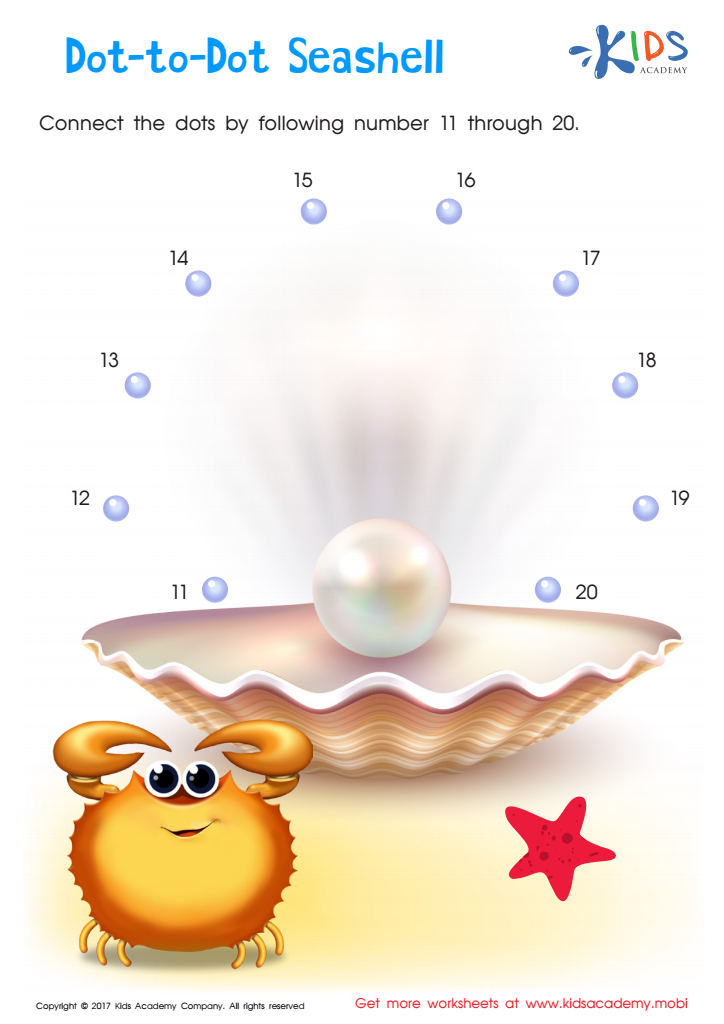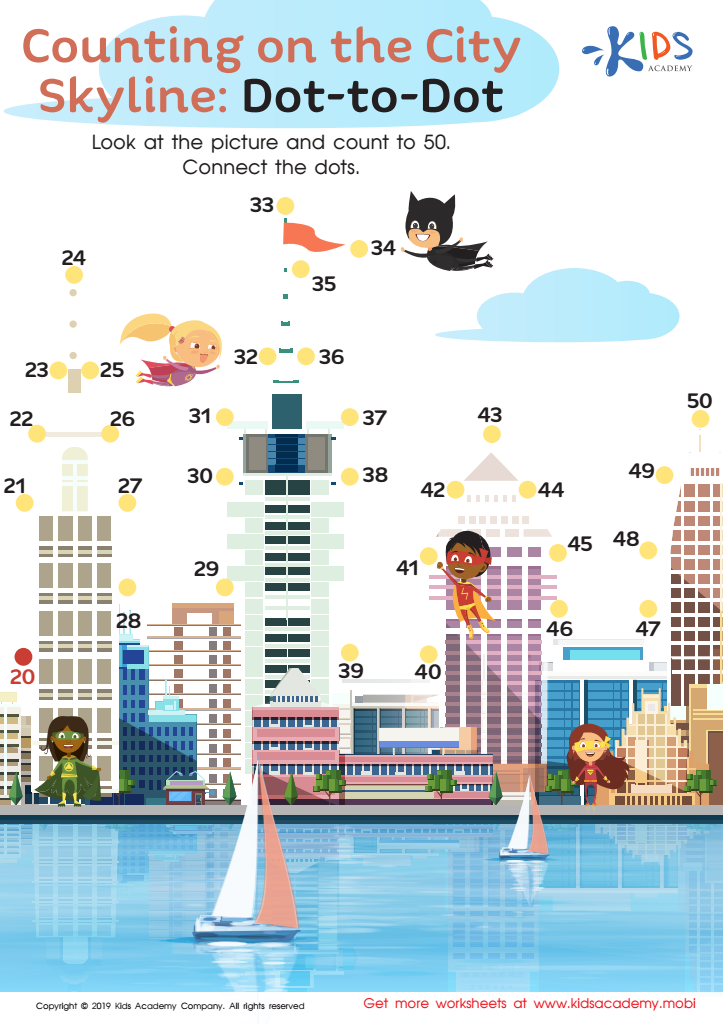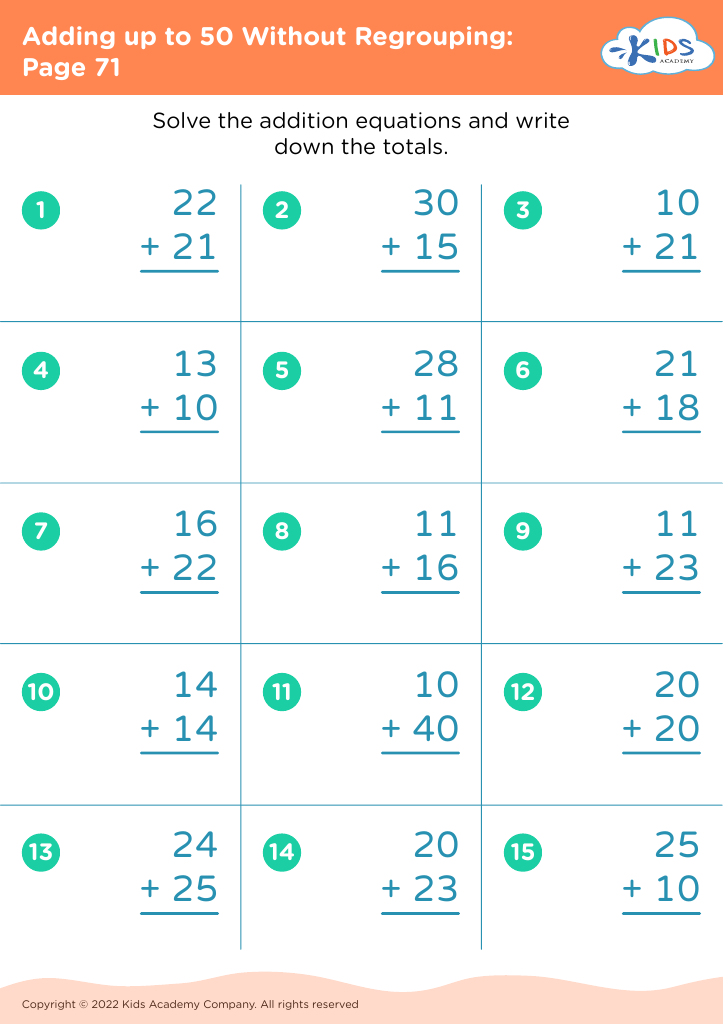Number sequence learning Worksheets for Ages 6-9
3 filtered results
-
From - To
Discover our engaging number sequence learning worksheets designed specifically for children ages 6-9! These colorful and interactive printables help young learners develop essential math skills as they master the art of identifying, creating, and completing number sequences. Each worksheet encourages critical thinking and problem-solving while making learning fun. Suitable for home or classroom use, our worksheets are aligned with educational standards to ensure effective learning. Watch your child's confidence grow as they build a strong foundation in mathematics through these creative activities. Explore our variety of worksheets today to spark a love for numbers and enhance your child's learning journey!


Ordering 11–20: Dot–to–dot Seashell Printable


Counting on the City Skyline: Dot-to-Dot Worksheet
Number sequence learning is crucial for children aged 6-9, as it lays the foundation for mathematical understanding and critical thinking. At this developmental stage, children begin to construct their mathematical identity, and mastering number sequences enhances their number sense, which is essential for everyday problem-solving. Recognizing and predicting number patterns can significantly improve students' ability to handle more complex mathematical concepts in the future, such as addition, subtraction, and even multiplication.
Moreover, understanding number sequences cultivates perseverance and logical reasoning, skills that extend beyond mathematics. As children learn to identify and extend patterns, they become more adept at making connections and applying their knowledge across different subjects and everyday situations.
For parents and teachers, fostering this skill helps create a supportive learning environment where children feel confident exploring mathematics. Engaging in number sequence activities can also strengthen the bond between parents and children, making learning a collaborative and enjoyable experience. Emphasizing number sequence learning ensures that children not only succeed in math but also develop a positive attitude towards learning, setting a solid groundwork for their academic journey. By prioritizing this area, adults empower children to build the skills necessary for future academic and life successes.


 Assign to My Students
Assign to My Students
















